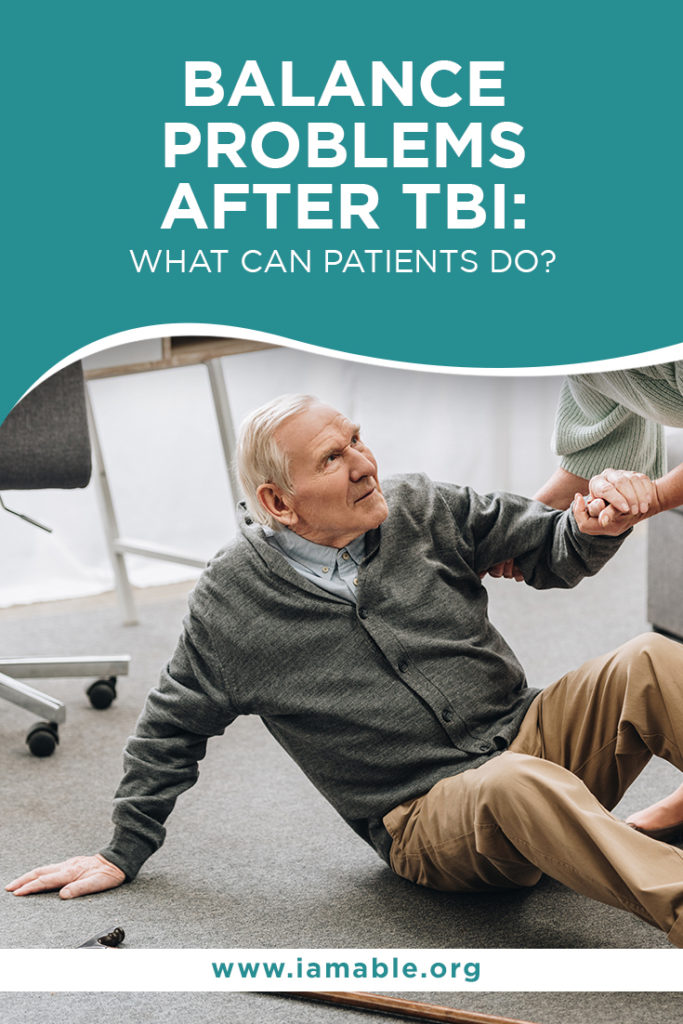Miami, FL 33186

Many patients seeking traumatic brain injury recovery in Miami experience balance problems like dizziness, unsteadiness, or vertigo attacks. Studies explain that this happens because a traumatic brain injury affects several aspects of brain function, including balance and motion perception. In most cases, the ability improves over time, allowing a TBI survivor to walk normally again.
However, it would take effort and patience to overcome the problem and address its many possible causes. Find out what you must do as a patient by reading our comprehensive discussion on balance problems after TBI.
Several organs work hand in hand to detect changes in the body’s orientation and movements. These include the vestibular organs, brainstem, eyes, and sensors attached to muscle fibers and joints. Here’s a closer look at how the balance organs work:
These comprised the tiny organs tucked in the inner ears. They detect changes in your head’s orientation and movement with the help of small hair-like cells.
Visual cues from your eyes allow your brain to assess how your body interacts with the environment. This way, you can avoid things like a wall or another person walking towards you.
Pressure stimuli detected by the sensors attached to various movable parts of the body help the brain maintain and achieve balance. The information obtained from the sensors also helps coordinate movements based on the environment.
As the body’s information superhighway, the brainstem transmits all the signals from the different organs involved in balance and motion perception to other sections of the brain.
Unfortunately, during an accident, these organs can suffer the impact. Sometimes, their connection with the brain gets severed, causing miscommunication and failure to correctly detect balance and motion changes.
Besides the injury itself, several other things can contribute to the brain’s inability to detect motion or balance changes. Examples include the medications prescribed to regulate blood pressure or treat bacterial infections. Notably, some blood pressure and antibiotic medications can cause mild to severe side effects like dizziness or loss of balance. The symptoms fade a few hours, but they can recur if you have other pre-existing health concerns such as:
BPPV is a common health complaint among TBI survivors. In fact, about 50 percent of TBI survivors develop BPPV symptoms like vertigo attacks. The impact from a traumatic injury tends to dislodge the otolith crystals from their original location, causing them to interfere with the inner ears’ ability to perceive motion.
A significant fraction of patients seeking traumatic brain injury recovery in Miami also suffers from brainstem injury. As a result, their brain struggles to receive correct information from the vestibular organs and body parts involved in motion and balance perception.
Sustaining a TBI can sometimes lead to cognitive and emotional impairment. Left untreated, the mental health issues that result from a TBI can aggravate symptoms like unsteadiness, vertigo attacks, and dizziness.
Naturally, if you experience balance problems after a TBI, it’s wise to consult with your primary physician. This will help you trace the main cause of your symptoms and determine the best course of action to use. For example, you might find it helpful to undergo therapies designed to restore and coordination, such as:
At iAM ABLE, we provide Lokomat therapy to TBI survivors to help them cope with balance problems during the early stages of their recovery journey. Essentially, this procedure involves supporting a patient’s weight with a harness attached to a piece of robot-assisted walking equipment. It comes in extra handy for TBI survivors who struggle with mobility issues.
Assisted exercises can help you regain your balance and muscle coordination. With the help of a friendly and trained physical therapist, you can perform low-impact exercises to build muscle strength and boost nerve stimulation. The guided physical activities can also help you re-develop lost skills because of your injury.
Indeed, it can be quite challenging to navigate life after a traumatic brain injury. Besides the physical impact on your brain, the damage can cause a catalog of issues ranging from mobility problems to loss of balance. Thankfully, there are several proven and sustainable ways you can improve your chances of achieving a complete traumatic brain injury recovery in Miami.
One way is to work with professionals specializing in TBI patient care, such as iAM ABLE. Guided by our intimate experience in helping people with TBI-related problems like dizziness, gait issues, and vertigo attacks, we provide a helpful and sustainable approach to rehabilitating the body.
We also actively share resources with our clients and online community to help them figure out what they must do so they can keep moving forward, despite their limitations and new situation.
Would you like to discover how you can live a happy and thriving life after a paralyzing TBI? Click here to grab a copy of our comprehensive eBook on how to live with paralysis. You can also reach us at alfredo@iamable.org or 305-283-9717 if you want to learn more about iAM ABLE’s TBI rehabilitation programs.
Grab our free e-book 7 Unbelievably Important Steps to Take to THRIVE after Paralysis by clicking the image below.
